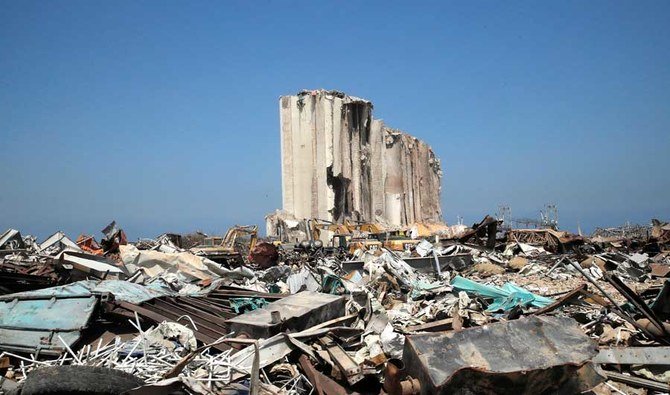
- ARAB NEWS
- 06 Jul 2025

As French President Emmanuel Macron visits Beirut for the second time in the span of just weeks, even to describe the situation in Lebanon is a very painful exercise. The collapse of the banking system has ruined most Lebanese families, poverty is everywhere and corruption is widespread.
The massive explosion on Aug. 4 in the Port of Beirut completed the disaster by bringing down much of the capital’s public infrastructure and crippling most of the public services. The people have a desperate sense of an end-of-days catastrophe. This situation is unprecedented in Lebanese history, even compared with the civil war period.
If the picture is bleak, it hides a reality that is even more so, which can be summarized in three points:
• Financial stability, on which Lebanon’s prosperity was based, is a distant memory.
• The country is deeply torn between clans and rivalries of all kinds — religious, economic or political. Therefore, the constitutional institutions have lost their legitimacy, and in actual fact the state exists no more.
• Lebanon is a defenseless prey of the rifts in the Middle East, not to mention the 2.5 million foreigners taking refuge on its soil and are its dependents.
We understand the despair of the Lebanese, many of whom believe that Lebanon does not have the means to get by on its own. But rather than giving in to pessimism, I believe it is still possible to draw up a project and implement it with a reasonable chance of success. It should include three main elements:
• First of all, a new economic and financial order, capable of restoring confidence, developed with the assistance of the International Monetary Fund and including the necessary safeguards against corruption.
• Next, new political institutions, with a new method of voting for the election of parliamentarians where confessionalism is no longer the main reference. The legitimate attachment of the Lebanese people to the diversity of their religions can be recognized and expressed in another way in the new constitution.
• Finally, all militias, including Hezbollah, will have to be integrated into the armed forces, reconfigured for this purpose if necessary, in order to restore and guarantee the unity of Lebanon.
Such a project may be deemed unrealistic. As things stand, there is probably little hope that the political forces involved can go down this road together. Rather, one imagines, alas, a gradual drift of the country towards a kind of “Somaliaization,” which could be the prelude to a new civil war supported from abroad.
Yet there will be no possible future for Lebanon without confronting this terrible equation with the three unknown variables mentioned earlier: Economic and financial for one, political and institutional for another, and finally security. Lebanon will probably not be able to do it alone, but that is the challenge.
It was not wrong of our Foreign Minister Jean-Yves Le Drian to tell the Lebanese: “Help us help you.” But the present situation is such that recovery from the crisis can only be successfully achieved with the help of the international community. Lebanon will need the political backing and friendly support of external partners who could be described as “trusted third parties.” In other words, let the trusted third parties help the Lebanese make the right decisions.
Now and before, Lebanon can count on the support of France. We should welcome the bold and courageous French initiatives
Herve de Charette
This requires a dual architecture: First, the major powers must encourage and support the proposed approach, and then the countries of the region will have to be involved in the development of the project, which will necessarily have to take into account the diversity of their concerns.
It is not about putting Lebanon under trusteeship; that would not be an adequate solution. Rather, it is a mediation, brokered outside Lebanon but at the service of the Lebanese, so as to help the local political forces find the right compromises that will allow Lebanon to restart on a new basis, and which should also be recognized, even guaranteed, by the main countries of the region.
Now and before, Lebanon can count on the support of France. We should welcome the bold and courageous initiatives already taken by President Macron. Our country is thus in the best position to conduct the international mediation that I suggest. In a precedent, in 1996 France showed its capacity for initiative in Lebanon in very difficult conditions. Why not in 2020?
Herve de Charette served as a French minister three times: In 1986-1988, 1993-1995, and 1995-1997 as minister of foreign affairs. He was mayor of Saint-Florent-le-Vieil from 1989 to 2014, and MP for Maine-et-Loire between 1988 and 2012.